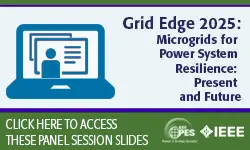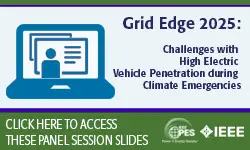GM 22 Tutorial: Distributed Optimization for Electric Power Systems: Needs, Algorithmic Developments, and Use Cases (Slides)
John McDonald, Rabab Haider, Anuradha Annaswamy,Xin Chen, Na (Lina) Li, Anurag Srivastava
-
Members: FreePES
IEEE Members: $74.00
Non-members: $99.00Pages/Slides: 291
Tutorial
14 Jul 2022
The rapid growth of distributed energy resources (e.g., solar PV, batteries, electric vehicle charging, etc.) motivates the transition from centralized to distributed computations to cooperatively control these devices such that network efficiency and reliability are maximized. Distributed optimization algorithms provide a number of potential advantages over centralized computations, including scalability via parallel computations, robustness to failure of individual computing agents, and data privacy. Accordingly, both academics and industry are looking towards distributed optimization algorithms to complement existing centralized computations through various use cases, such as volt/var control, solving optimal power flow, and managing retail electricity markets. To realize the potential advantages of distributed optimization, researchers have proposed various distributed optimization algorithms for these use cases, each with different advantages and disadvantages. This tutorial reviews various use cases for distributed optimization presents illustrative examples of several solution algorithms and discusses current limitations and future research needs


